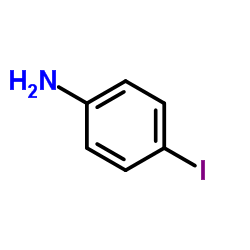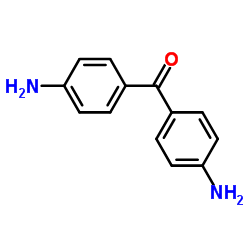6283-24-5
| Name | acetyloxy-(4-aminophenyl)mercury |
|---|---|
| Synonyms |
p-Aminophenylmercuriacetate
P-aminophenylmercuric acetate EINECS 228-497-1 4-Aminophenylmercuriacetate 4-amino-phenylmercury (1+),acetate p-aminophenylmercury acetate 4-Amino-phenylquecksilber(1+),Acetat 4-Aminophenylmercuric acetate (Acetato-O)(4-aminophenyl)mercury MFCD00007820 p-(Acetoxymercuri)aniline (Acetato)(p-aminophenyl)mercury 4-(Acetoxymercurio)aniline p-NH2C6H4HgCH3CO2 APMA |
| Description | p-Aminophenylmercuric acetate is an organomercurial activator of matrix metalloproteinases (MMP). P-Aminophenylmercuric acetate participates in the activation and inhibition of MMP-8 by attacking protein sulfhydryl or inducing cysteine switching reaction. p-Aminophenylmercuric acetate promotes the shedding of betacellulin precursor (pro-BTC). p-Aminophenylmercuric acetate influences the binding of agonists and antagonists to the opiate receptor[1][2][3]. |
|---|---|
| Related Catalog | |
| In Vitro | p-Aminophenylmercuric acetate (APMA) (0-30 µM;20 min) 减少了大鼠脑匀浆中二氢吗啡结合位点的数量,增加了激动剂对结合钠抑制作用的敏感性[2]。 p-Aminophenylmercuric acetate (0.5 mM;30 min) 激活基质金属蛋白酶 2 和 9[3]。 |
| References |
| Melting Point | 163-165 °C(lit.) |
|---|---|
| Molecular Formula | C8H9HgNO2 |
| Molecular Weight | 351.75 |
| Exact Mass | 353.03400 |
| PSA | 52.32000 |
| LogP | 1.03590 |
| Water Solubility | DMSO: 10 mg/mL, soluble |
CHEMICAL IDENTIFICATION
HEALTH HAZARD DATAACUTE TOXICITY DATA
|
| Hazard Codes | T+,N |
|---|---|
| Risk Phrases | R26/27/28;R33;R50/53 |
| Safety Phrases | S13-S28-S36-S45-S60-S61 |
| RIDADR | UN 2025 6.1/PG 2 |
| WGK Germany | 3 |
| RTECS | OV5550000 |
| Packaging Group | II |
| Hazard Class | 6.1(a) |
|
~% 
6283-24-5 |
| Literature: Pesci, L. Gazzetta Chimica Italiana, 1899 , vol. 29 I, p. 394 - 399 Full Text Show Details Vecchiotti, L. Gazzetta Chimica Italiana, 1914 , vol. 44 II, p. 34 - 38 |
| Precursor 1 | |
|---|---|
| DownStream 5 | |






